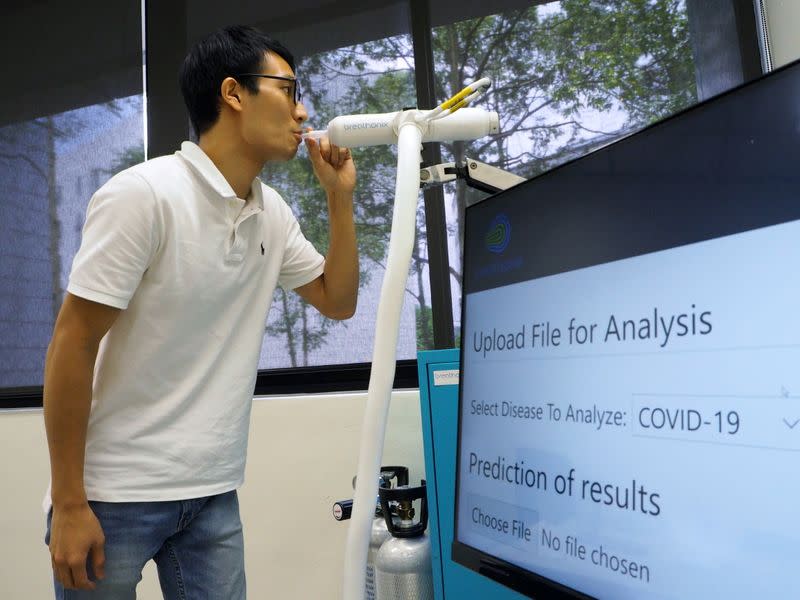Singapore firm invents coronavirus breathalyser with results in seconds
By Chen Lin
SINGAPORE (Reuters) - A company in Singapore has developed a breathalyser test for the new coronavirus which it says will enable people to know whether they are infected in under a minute.
Breathonix, a startup firm from the National University of Singapore, says its test achieved more than 90% accuracy in a pilot clinical trial of 180 people in the city-state and hopes to get regulatory approval early next year.
Countries worldwide are looking to develop alternative tests to the Polymerase Chain Reaction (PCR) nasal swab, which is invasive and in short supply in some places where demand has outstripped manufacturers' production capacity.
Breathonix is currently expanding its trial in Singapore and hopes to improve accuracy and get the green light to go commercial in the first quarter of next year.
At US$20, Breathonix says its test would be 70% cheaper than PCR tests, although infected patients would likely still need the more sensitive PCR tests to confirm the diagnosis.
"The breath test is more like a first level screen device," said Jia Zhunan, co-founder and CEO of Breathonix, adding it could be deployed at conferences, sports events and concerts.
The device uses disposable mouthpieces and is designed to ensure there is no cross-contamination.
After blowing into the device, it assesses the chemical compounds of the breath to determine whether or not a person is infected. Results are generated by a computer within 60 seconds.
A similar breathalyser is being tested by a hospital in France, although experts have warned the system may be too costly for widespread distribution.
(Reporting by Chen Lin; Editing by John Geddie and Martin Petty)

 Yahoo Finance
Yahoo Finance 

